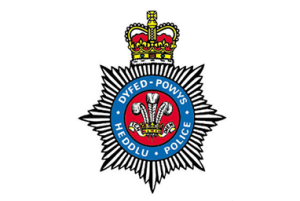 DYFED POWYS POLICE force has declined to provide information to The Herald about its use of police cars as make-shift ambulances as they have deemed it too time consuming and not worth their effort.
DYFED POWYS POLICE force has declined to provide information to The Herald about its use of police cars as make-shift ambulances as they have deemed it too time consuming and not worth their effort.
According to figures released by Plaid Cymru, who made Freedom of Information requests to each Welsh police force, more than 600 patients in Wales had to be taken to hospitals by police cars rather than ambulances over the last three years. The Welsh Ambulance Service said it was missing its eight-minute target and crews were “tied up” and unable to respond to other calls. Police dealt with a wide range of patients, including those who had attempted suicide, been involved in assaults or stabbings, suffered drink-related injuries or had hypothermia. While 600 is the figure from South Wales Police, North Wales Police and Gwent Police, Wales’ largest force Dyfed Powys did not provide any figures.
The Herald asked the Force: “On how many occasions in each of the financial years 2011-12, 2012- 13 and 2013-14 have the force been asked to take patients to hospital in police vehicles because of a lack of availability of ambulances to carry out the task?” The response that came back that an exemption to providing this information, freely available apparently under the Freedom of Information, applied and told us it would take a staggering 9635 hours – over a year of man hours to provide the Herald with the basic information given freely by other Welsh police forces.
While the Welsh Government claims that the figures cited represent less than 0.05% of all calls made to the Ambulance Service, the situation has been pounced upon as evidence of the growing crisis in the Welsh Ambulance Service at a time when Health Board service reorganisations are increasing the burden placed upon the grossly under-performing service. Mike Collins, director of service delivery at the ambulance service, said the organisation was working as hard as it could take patients to hospital as quickly as possible. “The trust is working in partnership with police forces across Wales to reduce instances where our emergency colleagues are awaiting an ambulance response,” he added. “Both the trust and all four police forces maintain frequent contact and are building on the close relationship in support of each other and their staff.
“Despite the increase in calls that we experience year on year we are actually reaching more and more people across Wales than ever before.” The crisis in Ambulance provision was highlighted by performance figures released in June which showed a catastrophic failure by the Welsh Ambulance Trust to meet minimum performance levels set by the Welsh Government. The figures show that 50.8% of ambulances in Pembrokeshire arrived at the scene of an immediate life-threatening Category A call within 8 minutes. The target is 65%. Neighbouring counties of Ceredigion and Carmarthenshire achieved better figures of 53.3% and 51.9% respectively, and the average for the whole of Wales was 54.1%.
The death of three years-old Angel Jade Smith of Carmarthen shows the depth of the challenge facing those seeking to improve first responder times. Having been recovered from a serious house fire, Angel received treatment for twenty minutes at the scene and had been transported to Glangwili Hospital by police officers before an ambulance arrived, forty minutes after being called. Carmarthen Ambulance station is only seven minutes from the family’s home. The Ambulance Service announced an enquiry into the matter, but a search of their website for further information on the incident drew a blank.















Add Comment